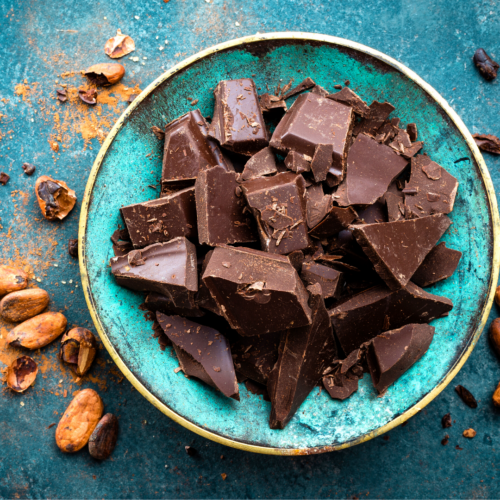Not only can stress lead to poor eating habits, it can also impact your ability to maintain a healthy weight. Stress also causes hormonal changes, which can signal the body to gain weight.
For example, when you are under stress, your body releases the stress hormone cortisol.
Elevated levels of cortisol can lead you to crave sugar-laden food. Consuming too much sugar elevates your blood glucose and therefore your body stores this excess sugar as abdominal fat. Cortisol also slows down your metabolism, making it harder to lose weight.
When you’ve gained weight and your clothes no longer fit, it’s easy to become more stressed. This leads to a vicious cycle of eating more, gaining weight, and staying in a state of perpetual stress.
Although you can’t completely cut out stress from your life, there are a few strategies you can use to reduce your stress and better regulate your weight.
1) Engage in mindfulness based practices like meditation & deep breathing exercises
2) Keep a food journal so you can pay attention to your food habits
3) Practice mindful eating by savoring your meal without any distractions
4) Make mindful movement a priority such as taking a walk or trying yoga
5) Don’t skimp on sleep – aim for at least 6 hours of quality, uninterrupted sleep
6) Make room for your hobbies
7) Be kind to yourself
If you’re struggling with weight gain and are ready to ditch those 10, 20, 30 + pesky pounds, I can help! Book your spot for a free dietary assessment call with me and let’s get you started to lose weight and keep it off for good.
 In the production process of turning cocoa beans into chocolate, two substances are formed- cocoa butter and cocoa solids. The cocoa solid content of the chocolate determines the amount of caffeine contained in the end product. The darker the chocolate, the greater the amount of cocoa solids contained which translates into higher amounts of caffeine. White chocolate however, is only comprised of cocoa butter. Since it does not contain cocoa solids it does not contain any caffeine.
In the production process of turning cocoa beans into chocolate, two substances are formed- cocoa butter and cocoa solids. The cocoa solid content of the chocolate determines the amount of caffeine contained in the end product. The darker the chocolate, the greater the amount of cocoa solids contained which translates into higher amounts of caffeine. White chocolate however, is only comprised of cocoa butter. Since it does not contain cocoa solids it does not contain any caffeine. 
